
In the United States — located outside the official Eurovision competition zone — some people first got to know the Israeli singer-songwriter Netta only from watching the Will Ferrell and Rachel McAdams spoof movie Eurovision Song Contest: The Story of Fire Saga. In the 2020 film, Netta — who won the famed international song contest in 2018 with her song “Toy” — cameos in a party scene at a castle with a host of other actual Eurovision winners. She steals the moment, emerging from a car singing the Black Eyed Peas song “I Gotta Feeling,” an immediately captivating fusion of flirtiness and swagger.
Known for her humorous lyrics, quirk-pop persona and over-the-top fashion, Netta, 29, has started 2022 by releasing a new single, “I Love My Nails” (S-Curve/Hollywood Records). On the surface, the song sounds like simply a paean to nail art but the Tel Aviv-based singer calls it a celebration of loving oneself.
“Something happened this year. I got my heart broken in, like, the most usual way that people reject other people. I can’t even hate him for not like me because not everybody has to love you. From a very, very confident girl, I became so small. So I thought ‘I love my nails’ is a nice way of saying, ‘I love myself,’” says Netta, who grew up in Nigeria and in Israel and was born Netta Barzilai.
“There is something very, very therapeutic about showing up for yourself even if it’s in the smallest things like doing your nails,” she continues.” Doing nails, doing long nails, takes time and devotion. And I love every second of it.”
Netta — who is known in her work for using a looping device (a portable machine that records her voice and allows her to loop it back) — spoke further with The Hollywood Reporter about how she got started in the music business, why she got put into “nail art jail,” and what it was like for her growing up for four years as a child in Nigeria and then moving back to Israel.
She can next be seen performing live at Chicago Pride (June 18) and New York Pride (June 25 and 26) and in Philadelphia on June 22 and Washington D.C. on June 23.
[embedded content]
What kind of nail art are you wearing right now?
This is like the awful truth. I did the music video like a week ago and I needed to do a lot of nail art [for it] and the machines that you use to scrape the nail polish off, they really hurt the nail if you overuse them. So I’m doing my time in nail jail right now. I overdid it.
Who are some celebrities whose nail game you admire or follow?
Rosalía always has the craziest pieces of art on her fingers. She wears something that resembles like drips of glass. And I loved an interview where somebody, I think Ellen [DeGeneres] asked Cardi B, ‘So your nails, how do you cope with them?’ And she said, ‘I know what you’re thinking. If I can wipe my ass, then I can do anything with it.’ Her nails are always amazing.
Do you have a go-to nail artist?
I love nail artists. I love the creation process. My nail artist is a very nice man called Ben Meir. And he actually took the song to heart so much that he tattooed the lyrics on his arm.
You start off the music video for ‘I Love My Nails’ actually using your nails to make sounds. How did that come about?
I played my nails. They make like a cool sound. The minute I started, I realized that they make this sound and I was jamming. And, uh, the minute I uploaded the video, people have swamped me with what Dolly Parton did 40 years ago. She put the sound into the ‘Nine to Five’ song. You are never gonna be the first [to do something], no matter what you do.
How far back to you remember being into music?
I hate myself saying it, but it’s from the moment I can remember. I grew up in Nigeria [for four years] that celebrated all of the cultures of the pupils who were going there. It was an international school. I was in a classroom with a girl from Japan and two boys from Nigeria and a girl from Australia and a girl from Mexico. They all had accents, so nobody had an accent. And they taught us a lot about where people come from and their music. And my mother would take us to see African gospel every Sunday and this became my musical bed which I grew from. And when I came back to Israel, I was seven years old and it was first grade and it was 40 white kids in a classroom telling me I’m the fat unibrow kid with the accent.
How hard was that for you?
When kids label you, it sticks and it’s a hard thing to bounce back from. My mother was very miserable as a parent, watching her kids come back from school crying, and she was thinking of ways to make me happy. And a good tip for parents is to get your kid kids in places besides school that empower them and makes them feel good. And my mother sent me to choir. Whenever I came back from there, it was the first smiles my mother saw since we came back from Nigeria.
What happened as you grew older?
My brother was drumming and he’s one of the most successful drummers in Israel today. I learned how to beatbox from him. Then when I finished high school, I went to the military because in Israel, we all have to go serve our country. And I was in an army band and we were singers in the navy on battle ships. It was like the best school for performance because usually soldiers they’re told to go. So you have to really fight for good attention. It was difficult and humiliating and amazing. After that, I moved to Tel Aviv and started to work in a bar selling tickets to shows happening there. And there was this open-mic stand. Nobody was singing. And then I drank like thee glasses of beer and I went up there and I sang for three minutes with a lot of improvisation. And the crowd loved it. They asked me to come the next week and I started doing this thing where I, I get drunk, I go on stage and do kind of a cabaret without understanding what I was doing. I was 21. I was eating fries out of people’s tables. I was singing to them. I would take the snare drum and I would go on the bar. People heard what was happening in this bar. And the line went from half a block to very long. I wasn’t making any living, but I was having the time of my life.
What happened next after working at that bar?
My musical director [Avshalom Ariel] discovered me. He, he was looking for singers for a play that he wrote. There was a character in the play who was a singer and she needed to be very, very aggressive. He searched and searched and he found a video of me drunk yelling at some guy to get away from the bar. I was, was really screaming. He said, ‘Okay.’ And he started to train me and work with me.
In 2017 then, you auditioned for the show HaKokhav HaBa, which chooses Israel’s entry in Eurovision. What was that like?
I was so afraid because I was so peculiar my whole life and I never thought that people in the mainstream could understand what I am doing, especially with the looping [machine]. It’s kind of like a toy. And when I came to the audition, I brought six sets of headphones because I wanted everybody to hear what I am doing. And when I came with my looper and I sang the audition song, they were all looking at me, very, very surprised. And the director said ‘Okay, you can win Eurovision. You can actually win Eurovision. And I need to think how to make this visual.’ And I learned how to play the looper like a guitar. It blew up on television. It worked. And I usually don’t think and don’t believe that good things could happen to me and it did and it was one of the happiest moments.
How did your Eurovision single ‘Toy’ come about?
I had a song written for me by someone who is the biggest hitmaker here in Israel. He wrote ‘Toy’ together with a very talented producer. And as a songwriter, I didn’t want the song written for me. So I wrote ‘Bassa Sababa’, which was my second single. We submitted both songs to the committed and [they chose] ‘Toy’. And when the song came out, I realized that I’m part of something that is bigger than me. And I came to realize that I am doing what I am doing and staying me is shocking. And I don’t know if it’s a song anymore. At that point it was a campaign, a campaign of power. It wasn’t my dream but I was so much more than I could have ever imagined.
What are some of the ways that you stayed creative during the pandemic?
I was creating through the screen, I was performing through the screen, I was meeting my fans through the screen. It was very depressing, but a lot happened. I started a YouTube series called Netta’s Office, which every week I would sit in my office with my looping devices and I would take suggestions from my fans to improvise and maybe [do] covers that they would like my take on. And it grew into a mini-cover album called Netta’s Office.
How would you categorize yourself as an artist?
Where would you put me in? What genre? In what space? I’m half drag queen, half Powerpuff girl and half Jacob Collier.
This article originally appeared in THR.com.
[flexi-common-toolbar] [flexi-form class=”flexi_form_style” title=”Submit to Flexi” name=”my_form” ajax=”true”][flexi-form-tag type=”post_title” class=”fl-input” title=”Title” value=”” required=”true”][flexi-form-tag type=”category” title=”Select category”][flexi-form-tag type=”tag” title=”Insert tag”][flexi-form-tag type=”article” class=”fl-textarea” title=”Description” ][flexi-form-tag type=”file” title=”Select file” required=”true”][flexi-form-tag type=”submit” name=”submit” value=”Submit Now”] [/flexi-form]
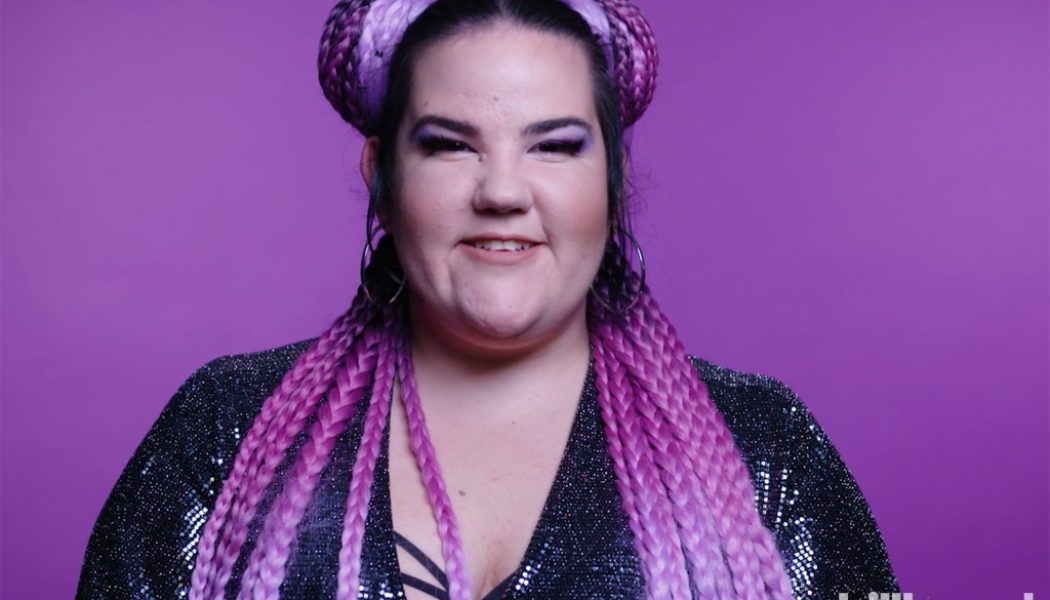
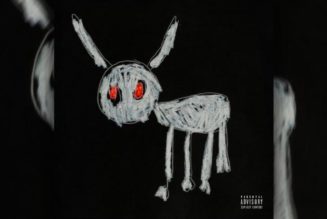
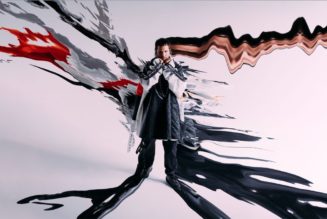
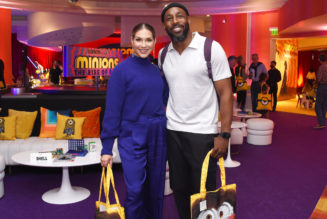
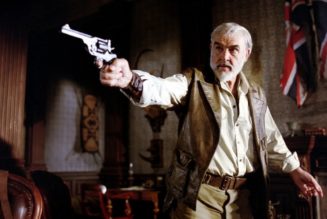
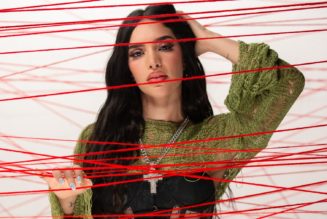
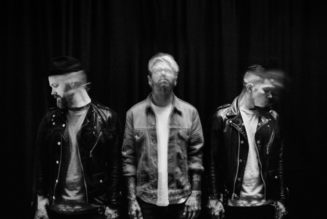
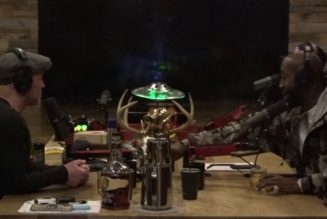
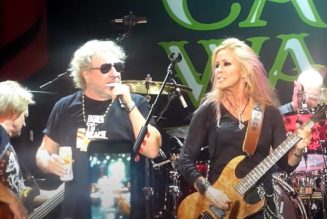
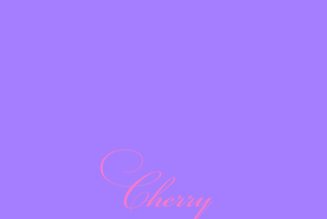
Tagged: entertainment blog, Eurovision, music, music blog, Pop, Pride